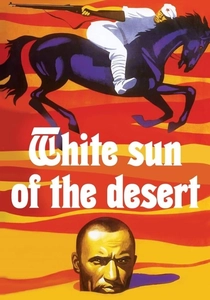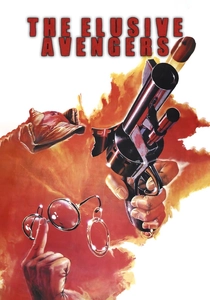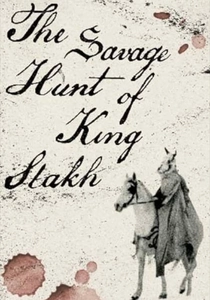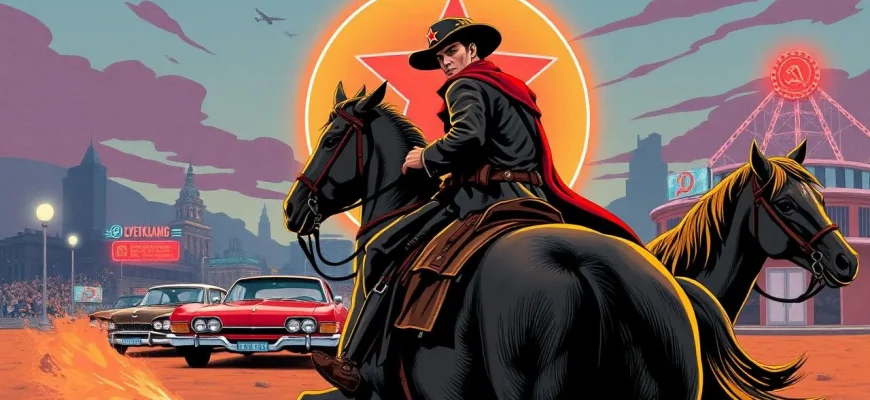- White Sun of the Desert (1970)
- The Elusive Avengers (1967)
- The Savage Hunt of King Stakh (1980)
- The Crown of the Russian Empire (1971)
- The Red Western (1980)
- The Ballad of Bering and His Friends (1970)
- The Adventures of the Yellow Suitcase (1970)
- The Seventh Bullet (1972)
- The Return of the Resident (1982)
- The Adventures of Prince Florizel (1979)
The Soviet Union's fascination with the American West led to the creation of a unique subgenre of films known as "Easterns." These films, while often mirroring the themes of American Westerns, infused their narratives with Soviet ideology, humor, and a distinct cultural twist. This collection not only provides a glimpse into Soviet cinema's interpretation of the Wild West but also offers a fascinating look at how different cultures adapt and reinterpret global genres. Here are ten Soviet cowboy films, each with its own charm and historical significance, all available with British English dubbing or subtitles.

White Sun of the Desert (1970)
Description: This film blends elements of Westerns with Soviet humor, set in the deserts of Central Asia. It follows a Red Army soldier who must navigate through a series of misadventures involving bandits and a harem.
Fact: The film's theme song became a cultural phenomenon in Russia, often played at weddings and other celebrations. It was also one of the favorite films of cosmonauts, who watched it before space missions for good luck.
 Watch Now
Watch Now

The Elusive Avengers (1967)
Description: This film is part of a trilogy and features young heroes fighting against the remnants of the White Army in post-revolutionary Russia, with elements reminiscent of Westerns.
Fact: The film was so popular that it led to two sequels, and its characters became iconic in Soviet culture, often parodied in other media.
 30 Days Free
30 Days Free

The Savage Hunt of King Stakh (1980)
Description: While not strictly a Western, this film has elements of a Gothic Western, set in the 19th-century Belarus, with themes of revenge and mystery.
Fact: The film is based on a novel by Uladzimir Karatkievich and has become a cult classic in Belarusian cinema.
 30 Days Free
30 Days Free

The Crown of the Russian Empire (1971)
Description: A satirical take on the Western genre, this film follows a group of adventurers in search of the lost crown jewels of the Russian Empire, encountering various odd characters along the way.
Fact: The film was directed by the famous Soviet director Eldar Ryazanov, known for his comedies, making this film a unique blend of humor and adventure.
 30 Days Free
30 Days Free

The Red Western (1980)
Description: This film explores the life of a Soviet spy in the Wild West, blending espionage with the classic Western setting, showcasing the ideological clash between East and West.
Fact: It was one of the few Soviet films that directly engaged with the Western genre, attempting to create a Soviet equivalent to American Westerns.
 30 Days Free
30 Days Free

The Ballad of Bering and His Friends (1970)
Description: This film tells the story of Vitus Bering, a Danish explorer in Russian service, with scenes reminiscent of Western exploration and adventure.
Fact: The film was shot in various locations, including the Soviet Far East, to capture the rugged landscapes that mirror the American West.
 30 Days Free
30 Days Free

The Adventures of the Yellow Suitcase (1970)
Description: This comedic film features a group of friends on a quest for a yellow suitcase, with scenes that parody Western tropes.
Fact: The film was one of the first Soviet comedies to gain international recognition, showcasing the lighter side of Soviet cinema.
 30 Days Free
30 Days Free

The Seventh Bullet (1972)
Description: A Red Army soldier, disguised as a bandit, infiltrates a gang to prevent a counter-revolutionary plot, with a Western-style setting.
Fact: The film was shot in the deserts of Uzbekistan, providing a visually striking backdrop for its Western-inspired plot.
 30 Days Free
30 Days Free

The Return of the Resident (1982)
Description: This film continues the story of a Soviet spy in the Wild West, with a focus on espionage and the ideological struggle.
Fact: It's part of a series that began with "The Red Western," expanding on the theme of Soviet agents in America.
 30 Days Free
30 Days Free

The Adventures of Prince Florizel (1979)
Description: Although not a traditional Western, this film includes elements of adventure and intrigue set in a pseudo-Western environment.
Fact: The film was inspired by Robert Louis Stevenson's stories, adapting them to fit a Soviet narrative context.
 30 Days Free
30 Days Free









